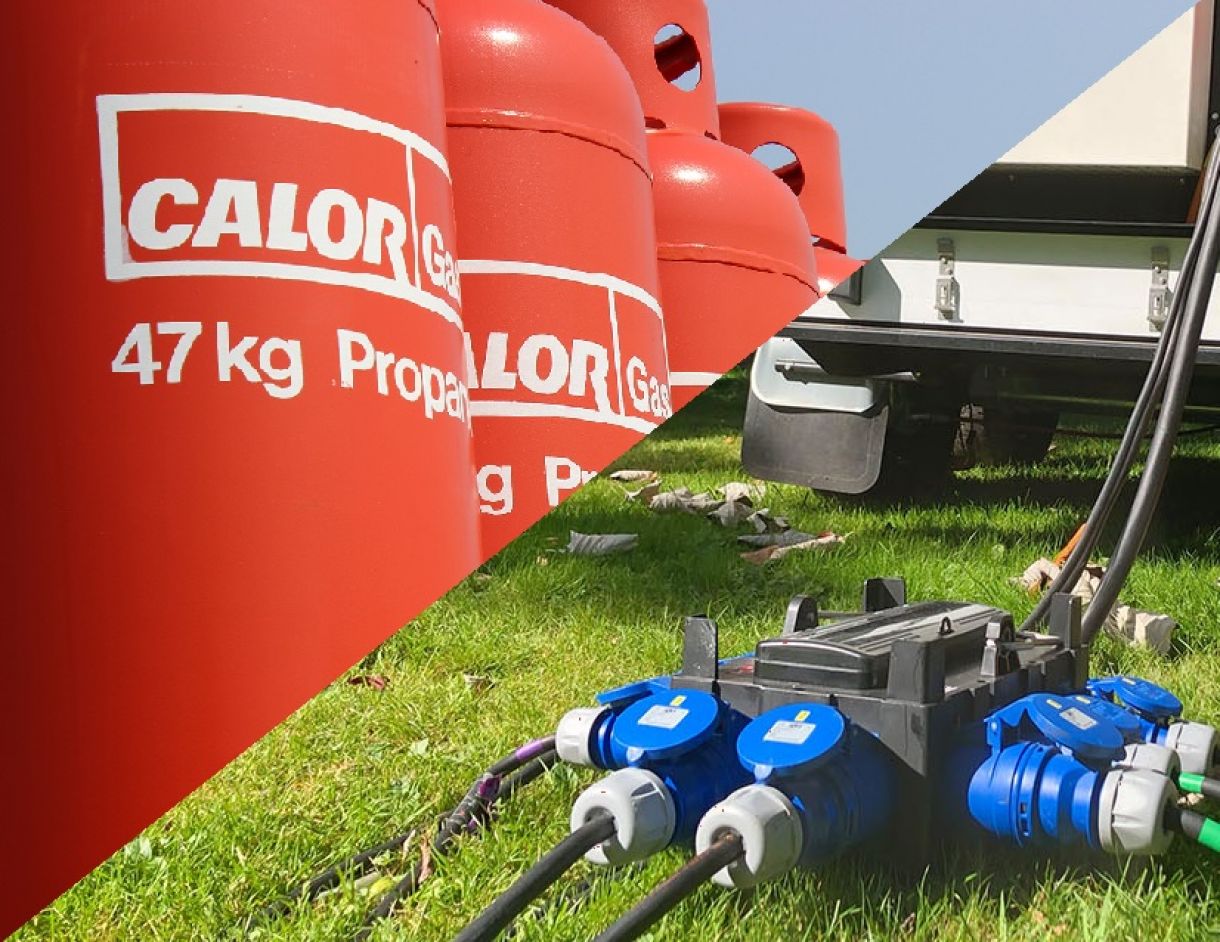This guide explains the key information you need to know on gas and electrical supplies, used to power your kitchen:
Electric power:
- Electricity is supplied from either a mains power supply or from temporary generators. Before it gets to the sockets it will go through a circuit breaker, which is a device that ensures not too much power is delivered.
- Different appliances require different ratings of power, usually related to their size and their heat output. All of our appliances will have their power rating listed on their product page on our website. For example, take a look at our Electric 6 Burner Range and you can see from the specification it requires a 32 Amp Three Phase supply.
- The various power ratings all have their own associated plug sockets and these always have to match the power rating.
- There are two key elements of power socket ratings:
- Amps: This is the measure of the maximum current flowing to the appliance. The amp rating for Jongor catering appliances starts at 13 amps and goes up in increments to 63 amps.
- Number of Phases: In simple terms, a three phase supply is three single phase supplies in one cable, so delivers three times the electrical power as the single phase equivalent. Single Phase is denoted by blue plugs and Three Phase power is denoted by red plugs. The exception is 13 amp plugs which only ever come in single phase.
.jpg)
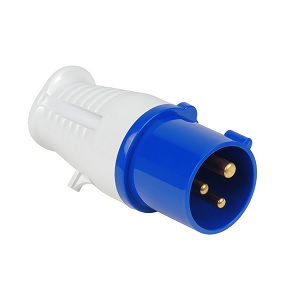
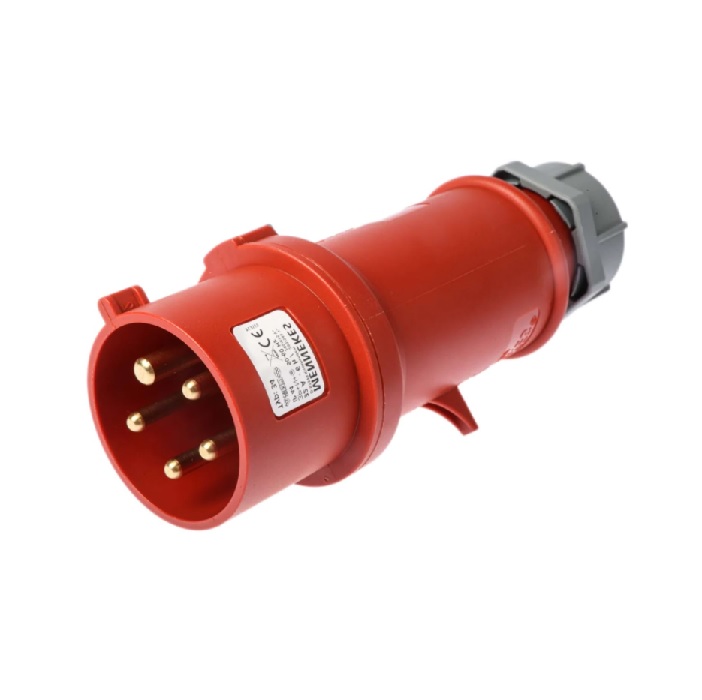
13 amp 16 amp single phase 16 amp three phase
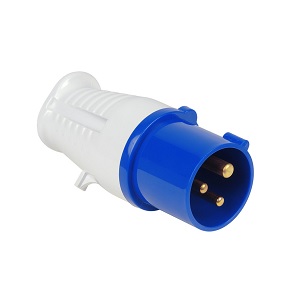
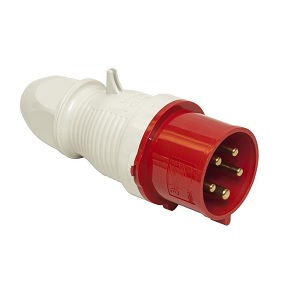
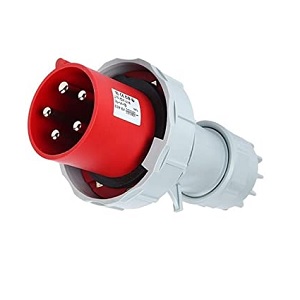
32 amp single phase 32 amp three phase 63 amp three phase
- If you already have a power supply at your location, you may be able to tell what power supply is available by taking a look at the sockets and the power rating should be denoted on the socket. If you don’t have the correct sockets available, then an electrician should be able to advise you on how to bring in the correct power to you.
- Extension leads or multi plug adapters cannot be used with any of Jongor’s appliances. Extension leads will burn out and using a multi plug will mean tripping the circuit breaker, as the number of amps drawn by the multiple appliances will exceed the socket rating.
- 13 amp sockets are for indoor use only, with only 16 amp sockets and above suitable for use outdoors.
Gas:
Gas catering equipment can be powered by LPG (Liquid Petroleum Gas) or Natural Gas (also known as Mains Gas) and appliances are set up differently depending on which of these they use.
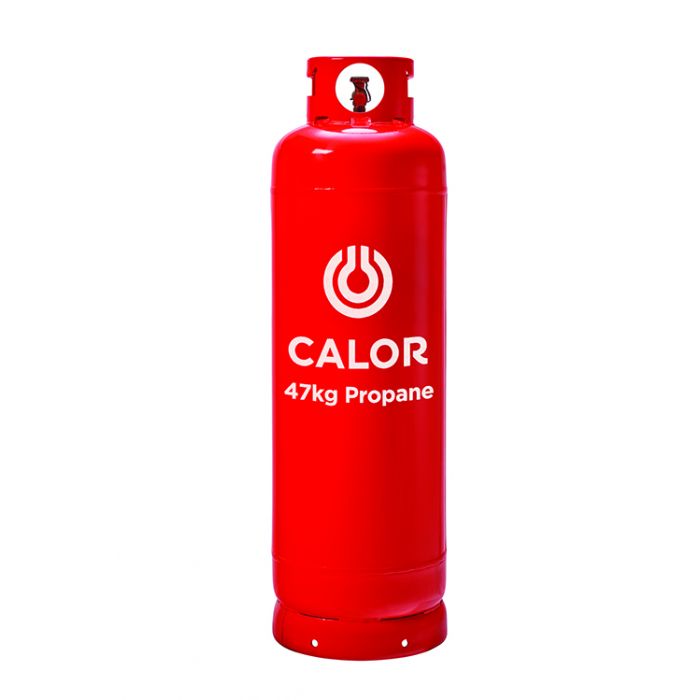
About LPG:
LPG is manufactured from refining fossil fuels, in the same process that we get petrol, diesel and jet fuel. For catering uses it is supplied in gas bottles, where is stored at a very high pressure and in liquid form. When it comes out of the bottle it transfers to a lower pressure and turns back into a gas.
- For catering purposes LPG is generally supplied using Propane gas, as propane has a very high heating ability. Propane is supplied in red gas bottles.
- Another type of LPG is Butane. Butane is generally used for low draw appliances such as our boiling rings or domestic camp fires, and is supplied in smaller blue bottles. Note that Butane bottles use different gas regulators, which is the connection between the bottle and the hose.
- Propane is heavier than air, so will sink into drains and gulleys if not in a well ventilated space and therefore must be managed properly.
- Therefore, propane bottles cannot be used indoors, unless a risk assessment for the building is completed by a qualified person and no more than 100kgs of propane gas (i.e. 2 x 47kg bottles) are in use.
- There are a number of regulations that need to be considered when using gas appliances, for more information click here.
Jongor and LPG:
- Jongor supply Propane bottles and regulators as our standard LPG supply.
- Almost all of our gas appliances require a minimum of 1 x 47kg Propane bottle to be able to deliver the correct pressure for the appliance to operate safely. There are a small number of items that can operate safely using a smaller 19kg bottle and there are some items that require two 47kg bottles to operate safely. These items are listed on our gas ordering page.
- Where there is a single appliance operating on its own, this can be connected directly to a gas bottle by a competent person.
- Where multiple appliances are being used in conjunction with each other, our Installation Team create a full kitchen gas network, just as you would find in a fixed commercial kitchen.

Natural Gas
- Natural gas is extracted as a gas from the ground or seabed and mainly comprises of methane.
- In the UK, this is the gas that we receive at home if we are connected to the mains gas supply, which is why it is sometimes referred to as ‘mains gas’.
- Natural gas has different properties to LPG gas and therefore some of the internal components of catering appliances, such as burner jets, are different to that of LPG equipment.
Jongor and Natural Gas
- Our equipment is set up to work with LPG, not Natural Gas as standard, but most of our equipment can be modified to run on Natural Gas. You can find out if an appliance can be modified by checking the product page on the website where it will state under the ‘information’ tab whether it can be converted from LPG to Natural Gas.
- Modifying equipment is undertaken prior to delivery by one of our Gas Safe engineers. Jongor have both Natural Gas and LPG supply lines in our test facility, so we fully test the equipment on its new supply before it receives its certificate for safe use. There is a charge for us to carry out the conversion each time.
- When connecting to a Natural Gas supply on your site, we can connect to a pre-existing gas connector, but we cannot cut into a gas pipe to create a new connection. If you do not have a gas connector available on your natural gas line, you will need to arrange for your local qualified gas installer to fit this for you.
What is the greenest way to power my kitchen?
- In the UK, the greenest way to power your temporary kitchen is through mains electricity, as approximately 50% of grid power comes from low-carbon sources.
- If mains electricity is not available, then Gas (either Natural Gas or LPG) is usually the next greenest way to power your kitchen. When gas is burnt, carbon dioxide and water is produced.
- The least green method is usually by using electricity from diesel generators. Diesel generators emit particulate matter, carbon monoxide, hydrocarbons and sulphur dioxide, which is approximately seven times more polluting than mains sourced electricity. More information on the green credentials of using diesel generators can be found here.
Gas or Electric: Which is best for me?
Gas summary:
- Gas appliances are quicker to reach temperature over electric appliances and the ability to manually control the size of flame allows for more direct cooking control.
- Gas appliances are marginally cheaper to hire than electric appliances.
- A gas line install will require a qualified engineer to install and commission the appliances which usually balances any saving.
- In gas kitchens, 60cm of free space is required behind the cook line to allow space for the gas pipework and access to it.
- Burning gas creates noxious gases such as carbon dioxide as a bi-product of the burning process, so you will need adequate ventilation to remove this from the cooking area. In a fixed structure or building, a kitchen will require a gas interlock and extraction system to be installed above any gas appliances for it to be commissioned within gas safety regulations.
- In a fixed structure, a mains gas (natural gas) supply may already be available, which we can connect to.
Electric summary:
- If powered from a mains supply, electric is the greenest way to supply your kitchen.
- An electrical power supply is required either from a mains supply or generators, with the correct socket type nearby to the appliance.
- If the supply is from a generator, the size and number of generators increases with the number of appliances. For kitchens of a large scale, generators and their fuel tanks take up significantly more space than an LPG gas bank. Generators create noise which needs to be considered in your site layout.
- Electrical appliances do not emit noxious gases within a kitchen when they are in operation, which is not the case for gas appliances. However consideration still needs to be given to extracting excess heat, steam and cooking fumes from a kitchen.
- In fixed structures and buildings, the power supply may already be there so there is no need for additional power to be brought in. Remember that the sockets you have must match the power rating for the appliance. A qualified electrician should be able to assist you if you do not currently have the correct power sockets available.
- In a fixed structure or building, it may not be possible to bring a temporary gas supply into the location, so electric could be the only power supply available to you.
Our engineers are on hand should you need further advice on your kitchen power requirements. Give us a call and we can try and assist you.
Please note this information is given as a guide and the appropriate regulations should be consulted before any buying decision or further action is taken. Jongor takes no responsibility for any result of the use of this advice.
